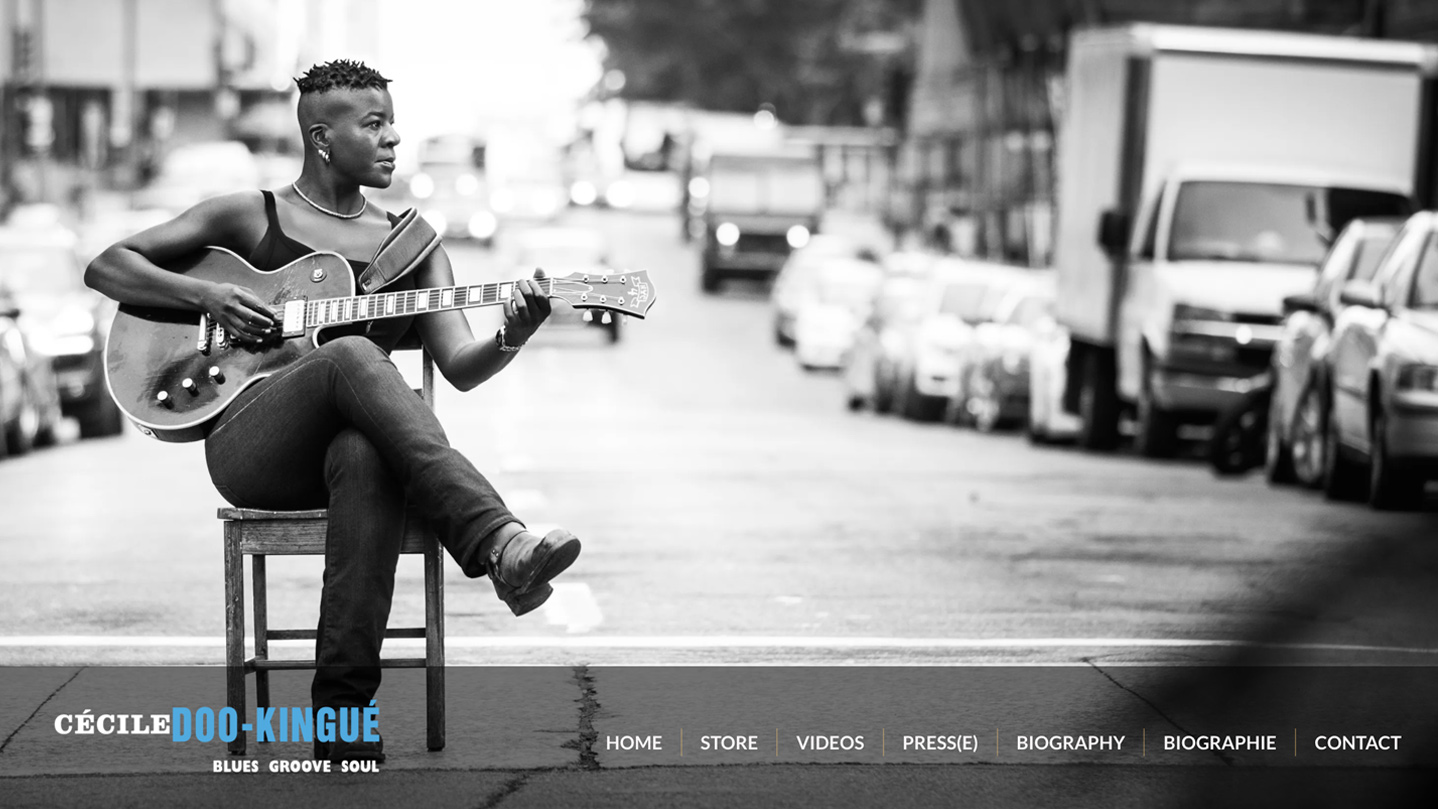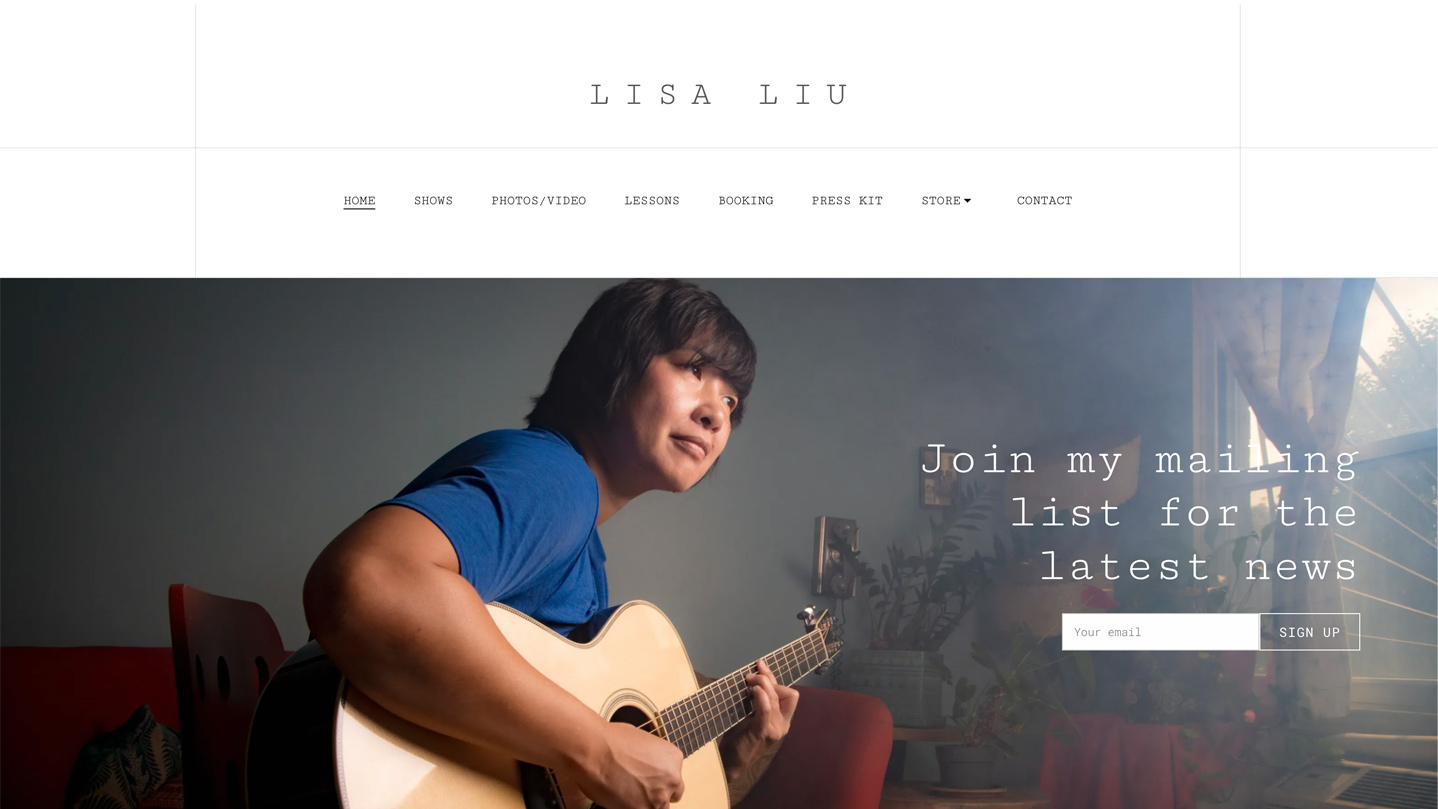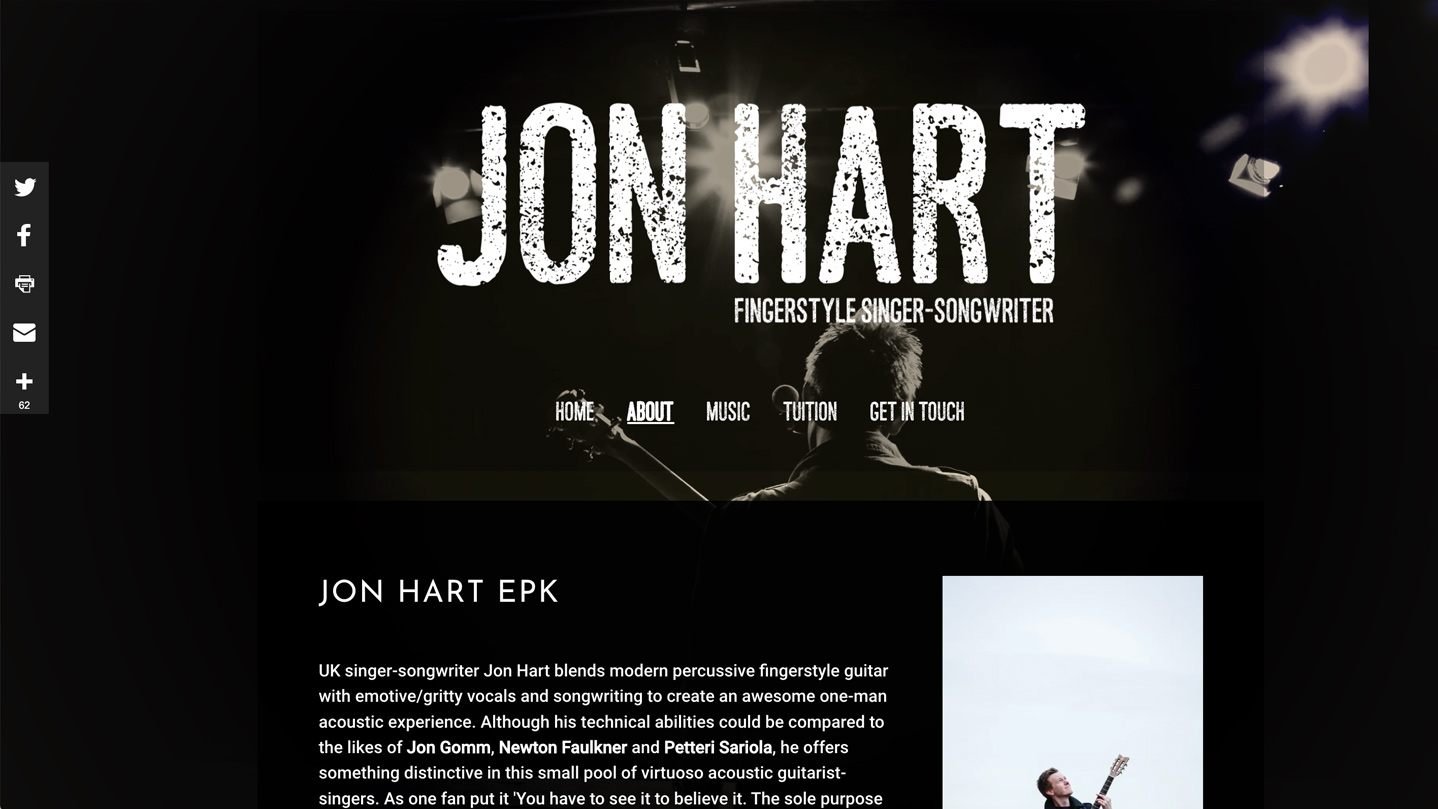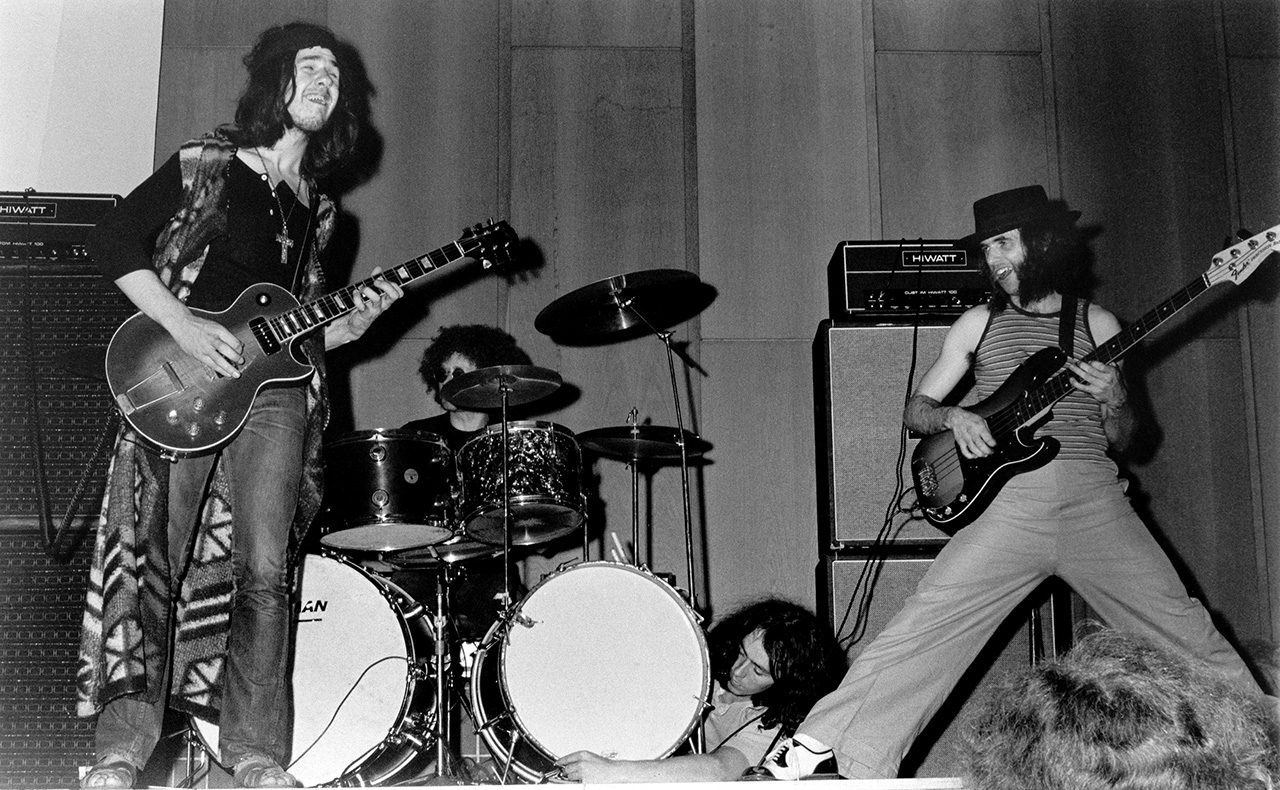How to build a strong website that’s right for your music
Social media can be a great tool, but its feeds are increasingly vulnerable to algorithms. For that reason, building a strong, multi-faceted website is vital for taking your career to the next level

With so many channels available for music promotion nowadays, it’s easy to get your cables tangled and lose the message along the way. Social media can be a great tool to show your day-to-day as a musician, but social feeds are increasingly vulnerable to algorithms.
To combat the endless scroll, you need to carve out a space for yourself on the web. With your own website, you’ll be able to put all of your content in one place.
Not only is having your own website great for organizing videos, artwork, tracks and merch, but you can make your website a unique experience that will create connections with fans and industry pros. Ready to create a website for your music? Here’s how to get started.
Stunning template design
Your website template is your chance to define your space on the web. A template gives you options for arranging things like your menu, header image and the overall style elements of your site. With a template, you can choose your site’s colors and font styles to create a unified look, and add personality to the page.
For instance, if you have promotional images, a new album, or a logo, try to incorporate colors and fonts from them throughout your site so you can brand it, stand out as a musician, and get the recognition you deserve.
Spotlight on your homepage
Whether your website visitors find you through a Google search, your own marketing or based on the suggestion of a fan, it’s a good idea to flesh out your homepage so that it grabs their attention.
Since your homepage will be the first page visitors land on when they reach your site, you’ll want to inspire them to check out the rest of your website. Here are some examples of content to include:
Additionally, lead off your homepage with a high-quality header image (or video) of you playing guitar. Your homepage is an introduction to you and your craft, so let it be a snapshot of what you have to offer.

Share your story
As a guitarist, you likely have unique musical skills that you’ve developed over years of practice and professional engagements. Dedicate a full page to your detailed artist bio so you can let your visitors know how you became the shredder you are today, and what you have planned for the future.
A great musician bio can also help introduce you to potential collaborators, and will be helpful for the media when they want to feature you and your music in their publications.
On your bio page, write about your passion for the guitar, your musical influences and how you’ve developed your style. Be sure to include any formal education or noteworthy experiences in your journey toward guitar mastery.
Invite your fans to listen and watch
Your music is what matters the most! In that case, you’ll want to create a full page that features all of your tracks, albums and music videos. If you have recordings of live performances (as video or audio recordings), studio recordings, video interviews, features in podcasts, you name it, put it all on that page.
You can structure the page to alternate between singles, albums and video, so you can show off the full range of your output.
Let them know where you’ll be playing next
You might be part of a few different projects, or just perform solo. Whichever way you present your music though, be sure to include a page on your website for your upcoming shows and highlights from past performances.
Add an event calendar that includes the details of each location, and give a shout out to the performers you’re sharing a bill with. Be sure to highlight any special details about the event – like if it’s an album release or one-time-only performance.
An image gallery on this page – featuring images of you performing – is an additional visual touch worth considering.

Highlight your achievements in your EPK
Electronic press kits are essential for modern musicians. An EPK is meant to feature the best-of-your-best in a concise package for the press, promoters, booking agents and record labels.
On your press kit page, you’ll want to feature a mix of musical highlights, press and promotional material. For instance, you can start your page by featuring a quick quote from a reputable source, then add a succinct artist bio, a list of your best songs and some promotional images.
You’ll also want to feature ways industry professionals can reach you, so add your social media links and industry-specific contact information near the bottom of the page. A great EPK can lead to residencies, festival gigs and studio sessions, so make sure you highlight your abilities and achievements on this page.
The best for last
Once website visitors have combed through your pages, they’ll likely want to reach out to you or follow you on social media. On the last page of your site, include a contact form and social media links.
Some people might head to your site just for your contact details, so make sure this stands out in your site’s menu. Don’t forget to add a mailing list signup here, too, so you can send promotional newsletters and keep the fan engagement going.
Creating your own website allows you to present all of yourself – your music, your story and your brand as a musician – in one place. Your website helps fans get a sense of who you are as an artist, and gives industry professionals a place to browse your curriculum vitae so they can offer you opportunities in the future. Creating your own website will help you take your career to the next level.
All the latest guitar news, interviews, lessons, reviews, deals and more, direct to your inbox!
